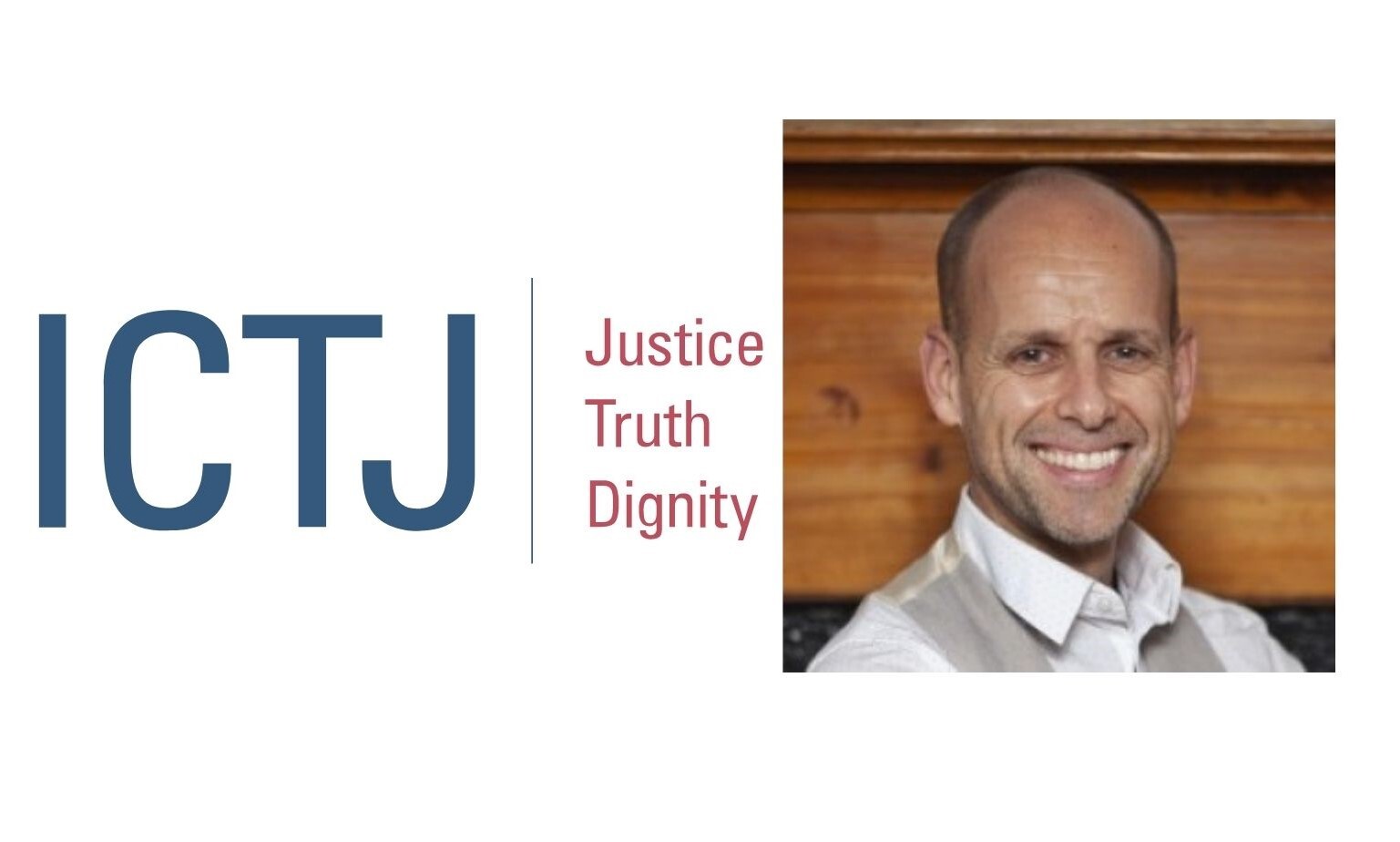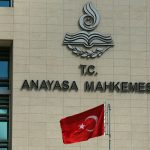Executive director of the International Center for Transitional Justice (ICTJ) Fernando Travesí said in an interview with the Stockholm Center for Freedom that it was imperative for every human rights advocate working on massive rights violations to learn about transitional justice processes in order to prepare for “the day after” repression.
“We worked a lot with societies that are in situations of ongoing conflict, where possibilities of justice are nonexistent, in order to document violations and to be ready for when the moment comes,” Travesí said. “… [T]he documentation of human rights violations is very important for bringing accountability and change in the future and not only for criminal processes.”
As part of SCF’s interview series “Freedom Talks,” our research director Dr. Merve R. Kayıkcı spoke with Fernando Travesí about transitional justice and the different methods societies can implement in the aftermath of massive human rights violations in order to not repeat those atrocities.
Travesí is a legal expert and has over 20 years of international experience in transitional justice, human rights and the rule of law, working for both international organizations and NGOs. His expertise is in the area of international public law, conflict resolution and negotiation.
Prior to joining ICTJ in 2014 Travesí was the director of the UNDP Transitional Justice Basket Fund in Colombia. He also served as UNDP senior justice advisor in Tunisia after the Jasmine Revolution. In Nepal and Colombia, Travesí held regional responsibilities with the International Committee of the Red Cross (ICRC) to protect civilian populations affected by the armed conflict, including documenting violations of international humanitarian law and detention visits and managing the dossier of the missing and disappeared.
He also worked in Sierra Leone as country director of the Spanish Red Cross, where he led Red Cross projects on rehabilitation of child combatants and children affected by the war. Prior to that he worked for the Movimiento por la Paz NGO as regional director for the Balkans leading a cross-border program on access to justice for refugees, displaced people and returnees and as country director in Albania during the Kosovo war.
What is transitional justice and how can it help societies that have faced massive human rights violations, including genocide and crimes against humanity?
Transitional justice is a concept that brings together different methods for societies to respond to atrocities and to face the legacy of massive human rights violations and their violent pasts. When we talk about transitional justice we are talking about the different methods we can use in order to bring maximum justice to a society that has experienced massive human rights violations or atrocities. I always emphasize that transitional justice is not only about criminal justice or about international criminal justice because this association is very common — transitional justice is reduced to international criminal justice. Indeed, it is a very important component; however, transitional justice brings us to a broader notion of justice. It talks about the right to truth, the right to reparations and setting up all the institutional reforms and measures to make sure there is a systemic change so a society does not again witness human rights violations.
Can you tell us about ICTJ and your past and ongoing projects?
ICTJ was created in 2001, so 20 years ago. It is an organization that helps societies advance justice processes. We have worked in more than 50 countries and accumulated significant institutional knowledge on transitional justice processes. We work with victim groups, civil society and human rights groups to fight against impunity for the crimes that have happened and also to advance the justice agenda. If the government and political authorities of a country have the will and are committed to addressing the justice agenda, we are also very good partners with governments. We also work with the African Union, the European Union and the United Nations. Depending on the countries and contexts our approach is very different. Sometimes we work only with civil society, but at other times it can be with civil society and the government. Our approach is tailored to the context.
What are some successful examples of transitional justice?
There are many examples, but the answer to this question depends on how you want to define success. I think transitional justice comes at a very critical moment in a country’s history and is a useful strategic approach to laying the groundwork for inclusive democracy.
In that sense there are countries like Argentina or Chile where the success of transitional justice is more apparent. There are also countries like Sierra Leone that are not considered a complete success but still manage some level of justice. Sierra Leone has been through internal struggles and still experiences problems, but they also have had several elections with no reoccurrence of violence.
If you think about success in absolute terms there will always be somebody to remind you of ongoing problems. Nevertheless, there are countries that have taken great steps on the way to building democracy. Germany is a country that came to terms with their past in a positive way. Until recently Tunisia had a positive experience rebuilding democracy, but now they are stepping back. This also shows how long term these processes are and how fragile building democracy can be. It has been 10 years since the revolution in Tunisia, but 10 years is like a second in historical terms. Therefore, we need to invest in long-term engagement and support to make sure these transitional justice processes are successful.
What is the right balance between retributive justice — holding perpetrators accountable — and restorative justice, i.e., starting a reconciliation and social transformation process?
This question does not have an absolute answer, and there is no one-size-fits-all solution we can apply everywhere. Every country has to find the balance in a way that is effective for them. It depends on the country’s institutional capacity, the capacity of civil society and the type of crimes that were committed.
When we talk about retributive justice, we need to explain to the victims that in the situation of massive human rights violations punishing every single perpetrator is impossible. This is the hard truth that needs to be understood. While working with victims we have seen that they understand this and demand other means of justice.
For instance victims demand the right to truth and they want to know what happened to their family members. They want to know why they were attacked. The right to know the truth can be materialized and justice can be delivered. Prosecuting perpetrators of human rights violations is needed and very important, but the judicial process is not always beneficial for the victims because the victims are cross-examined. Their experience is questioned by the defendant. And criminal justice focuses very much on the perpetrator and not the victims, and it can be really traumatic. Even if it is a successful prosecution and the perpetrator of one crime is punished, others will not be prosecuted and thousands of victims across the country will not get justice
Additionally, the standard of proof in a criminal process is very high. There is a very high possibility that the perpetrator will be acquitted in the end. This is very harmful for the victims, who can’t believe that an individual who everybody knows has committed rights violations is absolved because there was not strong enough evidence that proved their crimes during a trial. Such technicalities of criminal processes are very difficult for victims to understand.
In sum, even if some perpetrators are successfully prosecuted and punished, it will never be enough because there will still be victims that need to find other means of justice. So retributive justice needs to be combined with restorative justice to the extent that there is social energy, political opportunity and institutional capacity.
Understanding the system that led to such crimes is very important instead of focusing on the perpetrators. Targeting and reforming the system that led to crimes is more effective in delivering justice to the victims. I also believe in dismantling the system to prevent the repetition of such crimes.
I believe there is a combination of elements and measures that each country can put into place to achieve their goals of acknowledging past human rights violations, redressing the victims and then implementing reforms to prevent repetition.
Can you talk a bit about truth and reconciliation commissions? What is the difference between a truth commission and a criminal trial?
These commissions have become the flagship of many transitional justice processes. They are not mandatory, but they are important because they are the first step towards challenging the narrative of the oppressors, where crimes are often denied or justified by dehumanizing some parts of the population to commit atrocities against them.
So these commissions are very important for opening the space and the platform for those victims whose narratives have been rejected or silenced. Truth commissions are important for regaining humanity in a country that has normalized and justified violence. These commissions bring about a moral earthquake, especially to that part of society that has ignored the violence. Moreover, they are the most important step in rebuilding the social fabric.
There have been many truth and reconciliation commissions, and they come in many forms. For example there is one in Gambia, another one in Colombia that is preparing their final report coming up in June, one in Australia looking at indigenous populations and one in the Central African Republic.
Once the prosecutions occur and the truth-seeking processes are completed, what happens after that? Is institutional reform considered part of transitional justice?
It is important to remember that institutional reform is not the fourth step of transitional justice. In the past there was a checklist approach where certain steps were followed and institutional reform was at the very end. We at ICTJ have been challenging that for a long time because these processes are very political and therefore you don’t always have the political space to follow each step and you really need to understand the context and to tailor the process to adhere to the capacities and needs of the country.
Sometimes institutional reform needs to take place at the very beginning. For example, you cannot expect the country to have criminal proceedings if the justice system is complicit in the crimes. First, the justice system needs to be reformed. The same logic applies to the police and security forces, which are more typical examples of institutional reforms. If there was a conflict based on ethnicity you might need to reform the constitution in order to integrate that group that has been structurally excluded from the political life of the country.
In Tunisia institutional reform happened at the very beginning. In addition to a truth commission there was a new constitution and some mechanisms to look at systemic corruption.
Are reparations only in monetary form? Are victims involved in the reparations process, or do governments decide the form of reparations?
I think it is important to understand that sometimes reparations are narrowed down to financial compensation only. Although this is an important component, there are many more types of reparations. For instance reparations can be symbolic, and sincere apologies can be very meaningful for victims. Reparations can be materialized in the shape of rehabilitation or access to education or healthcare to repair the impact of human rights violations on their lives. Victims of sexual violence immediately come to mind. So reparations in the form of healthcare would be to provide care and rehabilitation that is tailored to their needs.
Also, reparations for generations that have lost education due to a conflict or a war can come in the form of scholarships. Another example is land restitution or house restitution, which refers to property rights. Ultimately, it is important to bring justice to victims in a way that they feel the impact very quickly.
Transitional justice was identified as a post-conflict mechanism; however, in the last 20 to 25 years, the approach of transitional justice, which is basically paying attention to the rights of the victims, is becoming more and more prominent in peace and political negotiations.
We can even apply this method to dealing with the sexual abuse cases with regards to the Catholic Church so that victims can seek the truth and there can be an institutional reform so that such things never happen again.
In the United States we are working on reparations for damages caused by structural racism, but also the legacy of slavery. In Belgium there was a parliamentary commission looking into the country’s colonial activities in the Democratic Republic of the Congo and means of reparation for the damage that was caused. In this case returning artwork was a form of reparation.
In Australia the truth commission is looking at the impact of 300 hundred years of colonization, and the indigenous communities want reparations for the land they lost, loss of cultural heritage, loss of opportunities.
How can transitional justice help shape the work of human rights defenders? As an expert, what are your recommendations for organization like SCF that are monitoring ongoing rights violations?
Transitional justice is a human rights-based approach to solving conflicts and overcoming crimes committed during wars and times of political repression. Every human rights advocate working in a situation where violations of human rights are massive — including economic, social and cultural rights violations — should really acquire knowledge about transitional justice processes because it will help them find methods to bring justice.
We worked a lot with societies that are in situations of ongoing conflict, where the possibilities of justice are nonexistent, in order to document violations and to be ready for when the moment comes. We worked for many years in Afghanistan, and all our partners are now out of the country. But we continue working with them because the documentation of human rights violations is very important for bringing accountability and change in the future, and not only for criminal processes.
My advice would be to become familiar with what transitional justice is and to think about how to advance the justice agenda in the situations that you are working.
Source:Stockholm Center for Freedom (SCF)
***Show us some LOVE by sharing it!***



